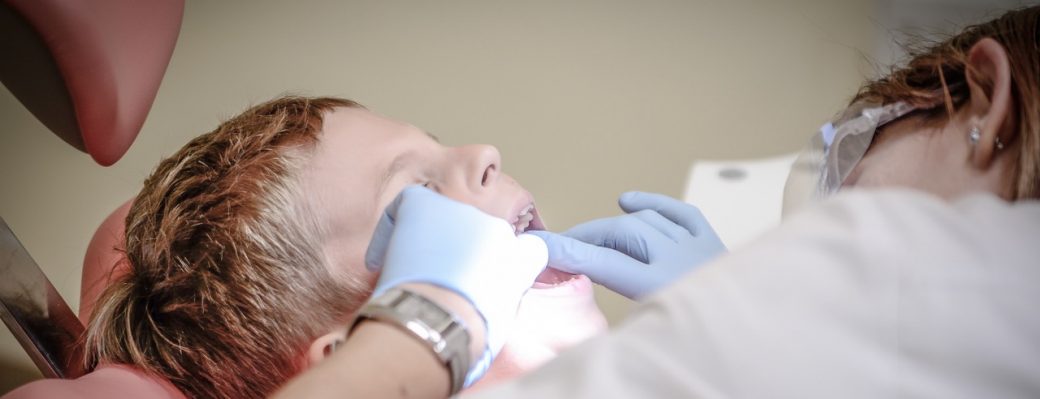Greetings from the dental implant surgery recovery area. Here, we will set out on a life-changing path to a bright smile and restored self-assurance. Following this amazing treatment, you will have time to recuperate and adjust before you can completely enjoy the advantages of your dental implants.
We shall negotiate the complexities of dental implant healing stages in this post, offering helpful insights and doable advice to guarantee a successful and efficient recovery procedure. So let’s set off on this journey to a repaired and alluring smile together.
Understanding Dental Implant Surgery: The Basics
Dental implant surgery is a significant and effective procedure for replacing missing teeth and restoring oral health. Understanding the basics of this surgical process, from the initial placement of the implant to the final restoration stage, is crucial for patients considering this option.
Overview of Dental Implant Procedure:
A metal post, usually made of titanium, is surgically inserted into the mandible as part of the dental implant procedure.
This post is a sturdy anchor for a dental crown, replacing the missing tooth. The procedure usually occurs in stages, starting with removing the damaged tooth and potentially involving bone grafts if the jawbone isn’t thick enough.
Healing and Integration Process:
After the implant placement, a critical phase known as osseointegration begins, where the implant fuses with the jawbone. This healing process is essential for providing a stable base for the new tooth and can take several months. During this time, patients are advised to maintain good oral hygiene and adhere to specific dietary guidelines, such as soft foods, to aid healing.
Potential for Implant Failure and Its Prevention:
While dental implant surgical procedure has a high success rate, implant failure can occur due to poor oral hygiene, infection, or inadequate bone integration. Good oral hygiene practices are vital to prevent infection at the surgical site and ensure the success of the implant.
Importance of Oral Hygiene in Recovery:
Following surgery, maintaining proper dental hygiene is essential. Patients should adhere to a rigorous oral hygiene regimen that includes rinsing with warm salt water, brushing gently, and without moving the surgical site. To track the healing process, routine dental examinations are also necessary.
Managing Discomfort and Recovery Time:
Post-surgical discomfort, such as minor swelling, pain, or bleeding, is common. Over-the-counter pain medications or prescribed medications can be used to manage these symptoms. Although recovery times vary, most patients can resume their regular activities in a few days, though they should refrain from physically demanding activities for at least a week.
Immediate Post-Surgery Care: First 24 Hours
The first 24 hours following the dental implant process are critical for ensuring a successful start to the healing process. Immediate post-surgery care focuses on managing common post-operative symptoms and preventing potential complications.
Bleeding Management:
Minor bleeding is expected after implant surgery. Patients should bite gently on a gauze pad over the surgical site for an hour to control bleeding. Replacing the gauze pad and maintaining gentle pressure is recommended if bleeding persists. Avoiding excessive spitting or rinsing during this period helps in blood clot formation.
Swelling and Bruising Control:
Swelling is a normal response and can be treated by applying an ice pack to the cheek area in intervals (20 minutes on, 20 minutes off). This should be done for the first few hours post-surgery to reduce swelling and bruising.
Pain Relief:
Pain after dental implant surgery can usually be managed with over-the-counter medications. Over-the-counter analgesics like acetaminophen or ibuprofen are commonly used in pain management to effectively reduce mild to moderate post-operative pain. For more intense pain, the oral surgeon may prescribe stronger pain medications. It’s important to follow the dosage instructions precisely to avoid side effects and ensure effective pain relief.
Dietary Adjustments:
Patients are advised to consume only soft foods and avoid hot beverages immediately post-surgery. Chewing should be done away from the implant site to prevent any disruption of the healing process.
Rest and Activity Limitation:
Rest is crucial during the first 24 hours. For patients to minimize bleeding and edema, they should refrain from physically demanding tasks and keep their heads up.
Oral Hygiene and Implant Site Care: Dos and Don’ts
Maintaining optimal oral hygiene and proper care of the implant site is vital for the success of dental implant surgery. Understanding the dos and don’ts of oral care post-surgery helps prevent complications and promotes effective healing.
Gentle Cleaning Around the Implant Site: Keeping the implant site clean is essential, but the cleaning must be gentle to avoid disrupting the surgical site. Patients should use a soft-bristled toothbrush and avoid direct brushing on the implant site. Gentle brushing in the surrounding areas helps maintain cleanliness without irritating.
Salt Water Rinses for Hygiene: Regular salt water rinses are recommended to aid in healing and prevent infection. These rinses, typically started 24 hours after surgery, help cleanse the mouth gently and reduce the risk of infection without the harshness of commercial mouthwashes.
Cold Compress Application: Applying a cold compress or ice pack to the cheek area near the implant site can significantly reduce swelling. This should be done intermittently (20 minutes on, 20 minutes off) during the first 24-48 hours after surgery. The cold helps constrict blood vessels, reducing inflammation and numbing the area to alleviate pain.
Elevating the Head: Keeping the head elevated, especially during sleep for the first few nights, can help reduce swelling. This position aids in decreasing blood flow to the surgical area, thus minimizing swelling.
Avoiding Certain Oral Hygiene Products: Patients should avoid using alcohol-based mouthwashes or very abrasive toothpaste, as these can irritate the surgical site. Non-alcoholic mouthwashes or those specifically recommended by the dentist are preferable.
Preventing Implant Site Disturbance: Activities that can disrupt the implant site, such as using straws, smoking, or vigorous rinsing and spitting, should be avoided. These actions can dislodge the blood clot or harm the healing tissue.
Eating Soft Foods to Protect the Implant Area: During the initial healing period, soft foods are recommended to prevent undue pressure or damage to the implant site. Hard, sticky, or chewy foods can disrupt healing and should be avoided.
Regular Dental Check-ups for Monitoring: Regular follow-up appointments with the dentist are crucial to monitor the healing process and address any issues promptly. The dentist can provide specific guidance on oral care tailored to the individual’s needs.
Diet and Nutrition Post-Implant Surgery: What to Eat and Avoid
Adopting the right diet and nutrition post-implant surgery is crucial for a smooth recovery and the success of the dental implant. Understanding what to eat and what to avoid can significantly impact the healing process and overall oral health.
Eating Soft Foods: In the initial days following the implant surgery, patients are advised to eat soft foods that require minimal chewing. Options like yogurt, applesauce, oatmeal, scrambled eggs, and smooth soups are ideal. These foods reduce the risk of putting pressure on the implant site, thereby aiding in healing.
Avoiding Hard, Sticky, and Chewy Foods: Hard, sticky, or chewy foods can disrupt the implant site and should be avoided during healing. Foods such as nuts, candies, and tough meats can apply undue pressure or dislodge the implant.
Cold and Lukewarm Foods for Comfort: Consuming cold or lukewarm foods can be soothing and help reduce swelling. Patients should avoid extremely hot foods and beverages, as they can increase swelling and sensitivity in the surgical area.
Staying Hydrated: Proper hydration is essential for healing. Patients should drink plenty of water to stay hydrated, but avoid using straws as the suction can interfere with the healing process and the implant’s stability.
Vitamin and Mineral-Rich Foods for Healing: Incorporating foods rich in vitamins and minerals, such as fruits, vegetables, and lean proteins, can support the body’s healing process. These nutrients are crucial for tissue repair and overall health.
Limiting Sugary and Acidic Foods: Reducing the intake of sugary and acidic foods can prevent decay in the natural teeth and irritation at the implant site. These foods can also lead to gum disease, which can affect the implant’s health.
Activity Restrictions and Lifestyle Adjustments

Post-dental implant surgery, adhering to certain activity restrictions, and making lifestyle adjustments are essential for a successful recovery. These measures protect the surgical site, promote healing, and prevent complications.
Avoiding Strenuous Activities: In the initial days following the surgery, patients should avoid strenuous activities, including heavy lifting, vigorous exercise, or any action that could increase blood pressure and lead to bleeding at the implant site. Activities should be gradually resumed based on the patient’s comfort level and the dentist’s advice.
Restricting Smoking and Alcohol Consumption: Smoking and alcohol consumption can significantly hinder the healing process. Smoking decreases blood flow, delaying healing and increasing the risk of implant failure. Alcohol can cause inflammation and postpone healing, as well as interfere with the efficacy of any prescription treatment.
Careful with Physical Impact Activities: Patients should be cautious with activities that risk physical impact on the face or jaw, such as contact sports. Using protective gear or avoiding such activities until fully healed is advisable.
Managing Sleep and Rest: Ensuring adequate rest is important for recovery. During sleep, keeping the head elevated can reduce swelling. Patients should use extra pillows to prop up their heads for the first few nights post-surgery.
Oral Hygiene Routine: Maintaining a gentle but thorough oral hygiene routine is crucial. This includes brushing with a soft-bristled toothbrush, using a saltwater rinse, and avoiding aggressive flossing near the implant site.
Dietary Considerations: A diet of soft foods is recommended initially to avoid putting pressure on the implant site. Gradually, firmer foods can be reintroduced as healing progresses.
Long-Term Care and Monitoring: Ensuring Successful Healing
Long-term care and monitoring are critical components in ensuring dental implants’ successful healing and longevity. This ongoing commitment to oral health maintenance and regular dental check-ups is vital to the implant’s success.
Consistent Oral Hygiene Routine: Good oral hygiene is paramount for implant longevity. This entails using antiseptic mouthwash to avoid infection, gently flossing the area surrounding the implant, and brushing on a regular basis using a toothbrush that has soft bristles.
Good oral hygiene helps preserve the surrounding gum tissue and prevent peri-implant diseases.
Routine Dental Visits: Regular dental check-ups allow for monitoring of the implant, surrounding teeth, and overall oral health. These visits typically include cleaning the implant site, checking for any signs of infection or gum disease, and ensuring the implant functions properly.
Avoiding Harmful Habits: Patients ought to abstain from behaviors that can harm the implant, like smoking, which hinders healing and raises the possibility of implant failure. To protect the implant crown, chewing on hard objects like ice or hard sweets should also be avoided.
Monitoring for Signs of Complications: Being vigilant for signs of implant failure or complications is important. Symptoms like persistent pain, swelling, or implant movement should be reported to the dentist immediately.
Managing Bite and Jaw Alignment: Regular check-ups can also assess bite alignment and ensure that the implant is not subjected to excessive force, which can cause damage over time.
In conclusion, dental implant recovery is crucial for successful outcomes. By following the recommended post-operative care instructions your dentist provides, you can ensure a smooth and comfortable dental implant healing time. Remember to take prescribed pain medications, maintain oral hygiene, and avoid chewing on the dental implant site to promote optimal healing. During recovery, it is important to be patient and allow sufficient time for your dental implant to integrate with the jawbone. By prioritizing your recovery and following the guidelines set by your dental professional, you can enhance your chances of a successful dental implant surgery recovery.
References
Dental implant surgery – Mayo Clinic
https://www.mayoclinic.org/tests-procedures/dental-implant-surgery/about/pac-20384622
Patient’s Perception of Recovery after Dental Implant Placement – PMC
https://www.ncbi.nlm.nih.gov/pmc/articles/PMC8538387/
Dental Implant Procedure: Everything You Need to Know
https://www.verywellhealth.com/what-to-expect-during-a-dental-implant-procedure-1059372
Dental Implant Pain: What’s Typical & When to Get Help
https://www.healthline.com/health/dental-and-oral-health/dental-implant-pain
Dental Implants: Tooth Implants, Dentures, Dental Crowns & Bridges
https://my.clevelandclinic.org/health/treatments/10903-dental-implants


